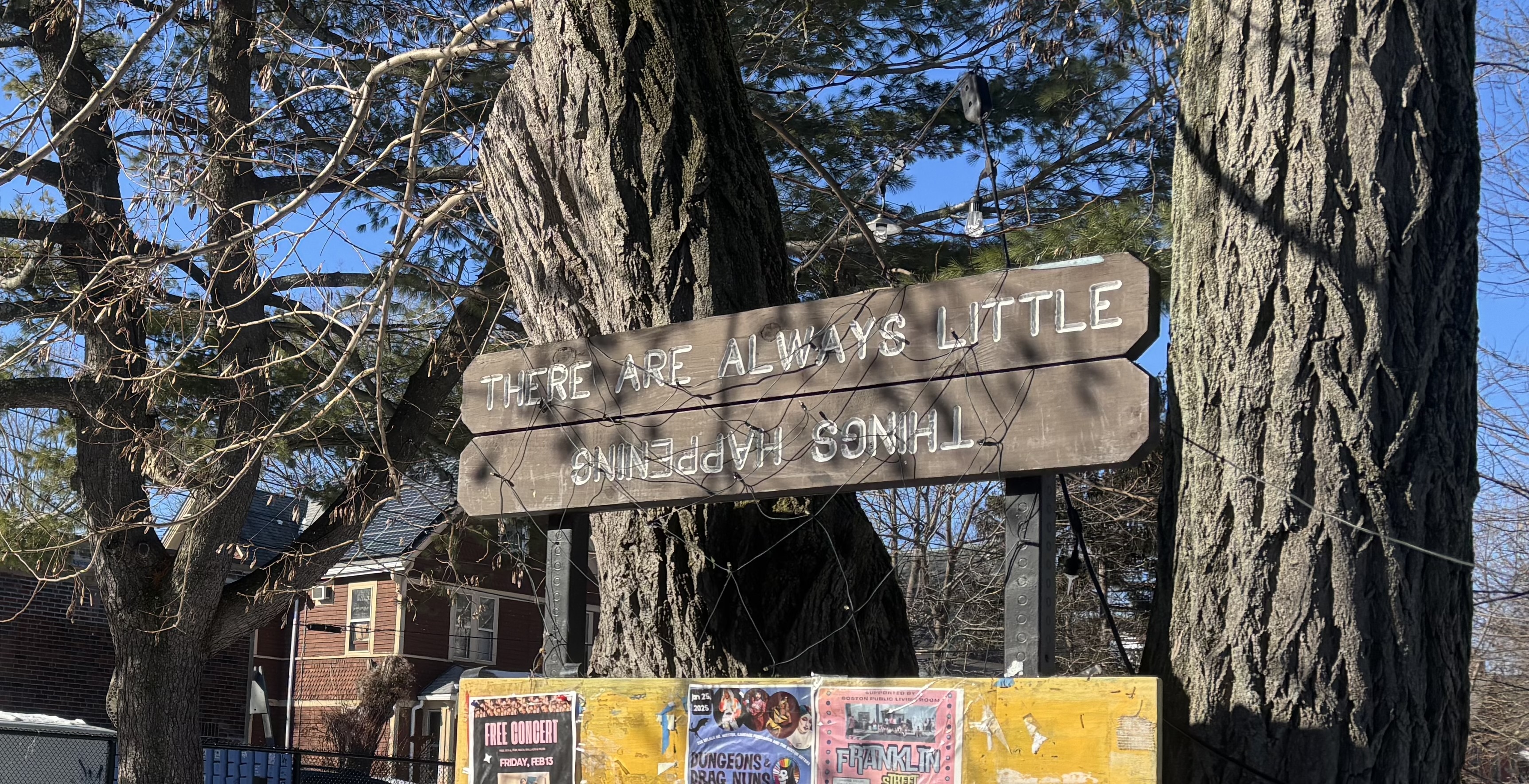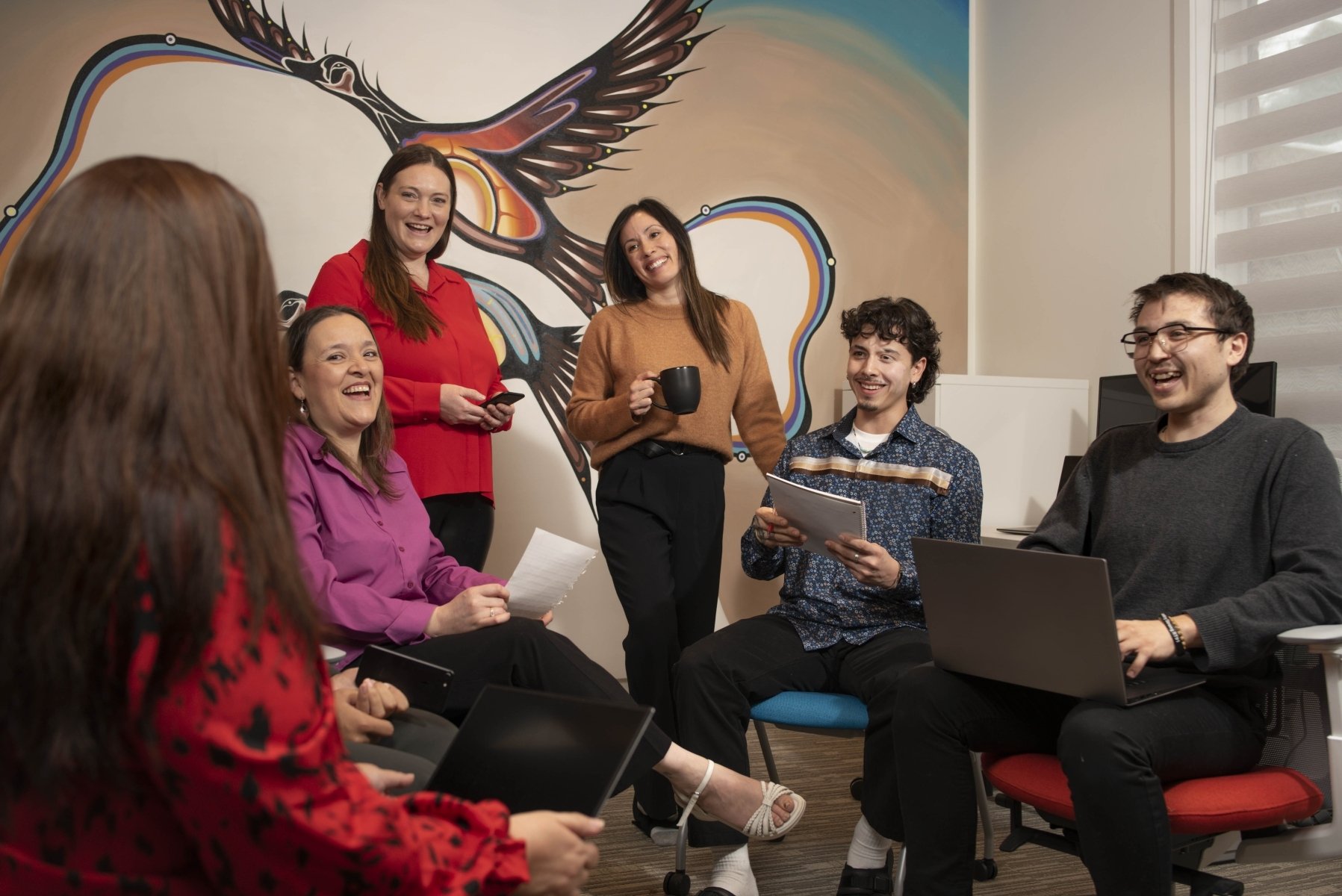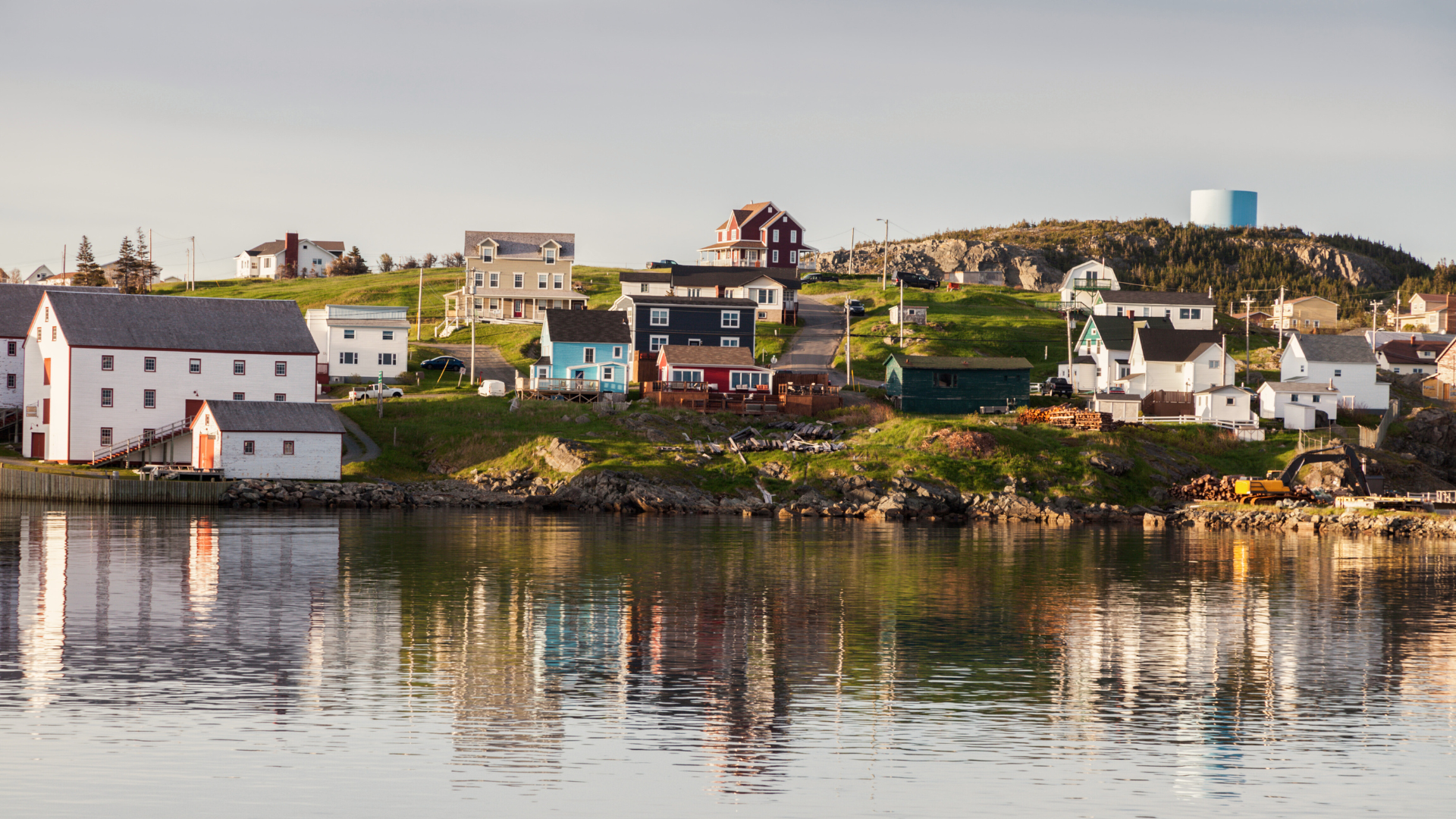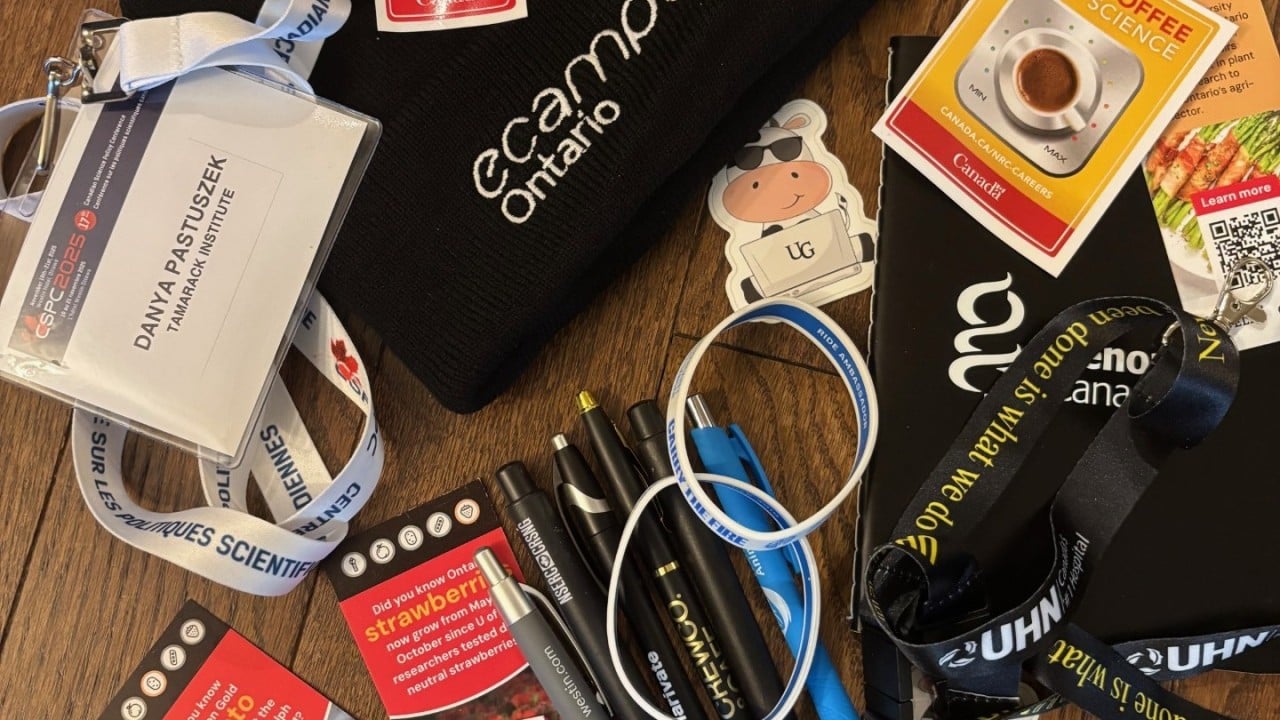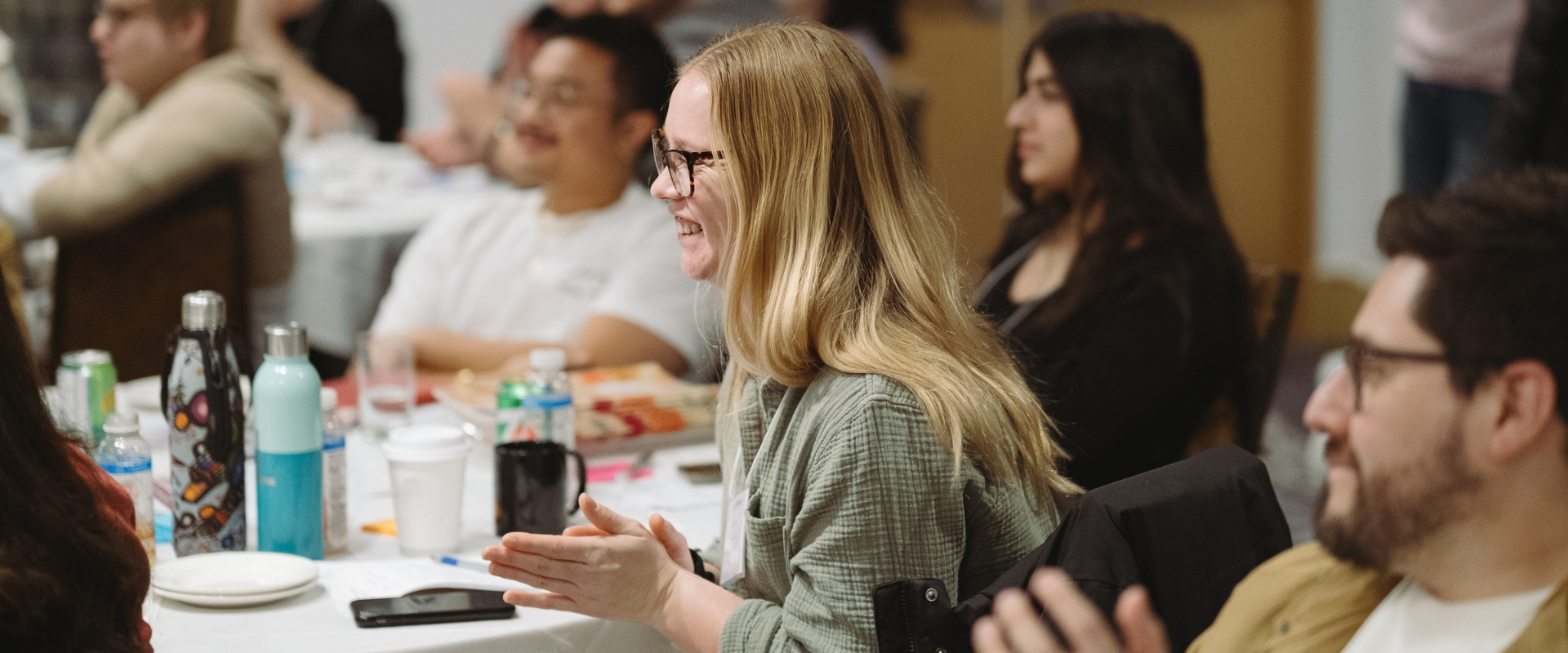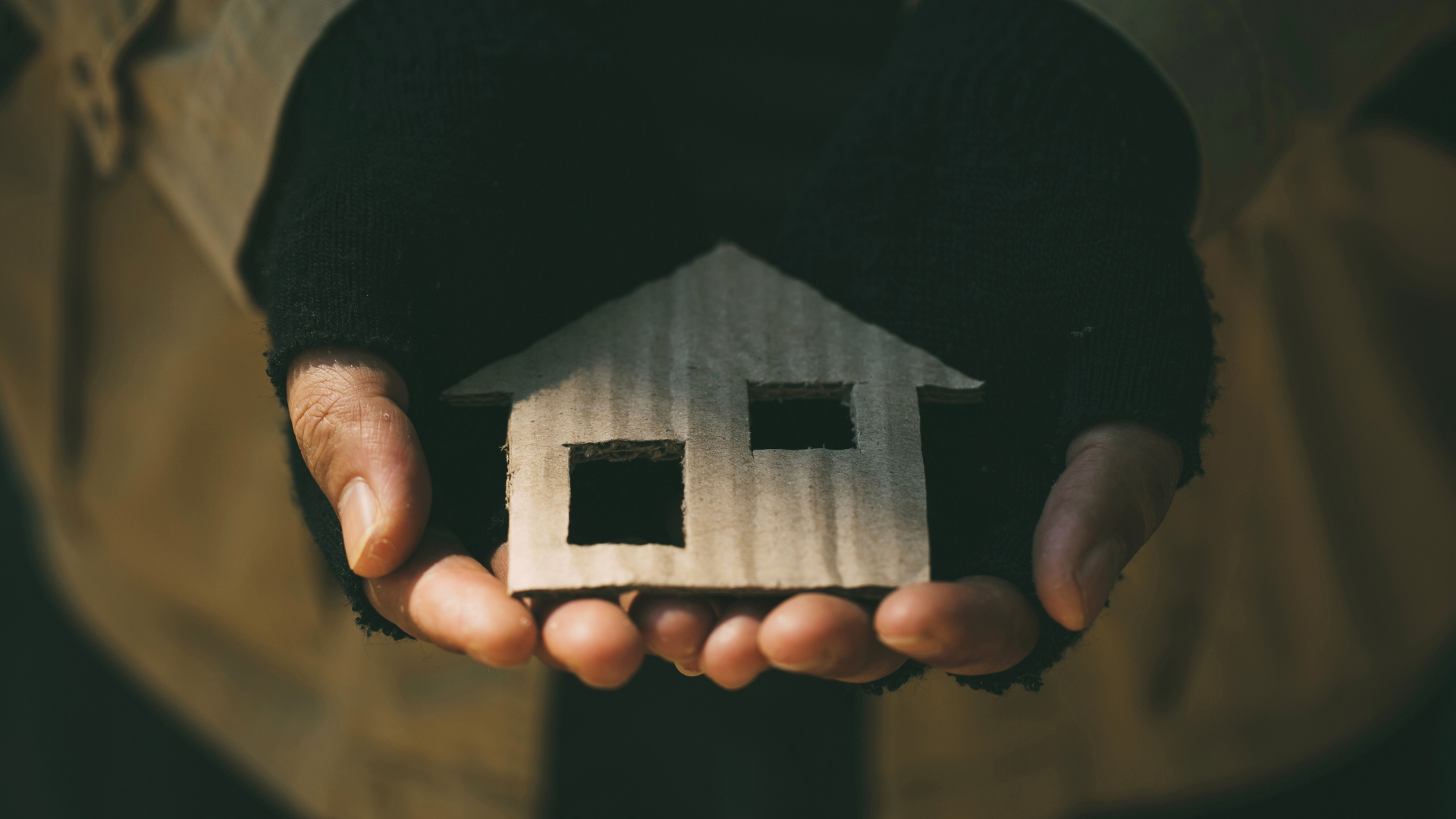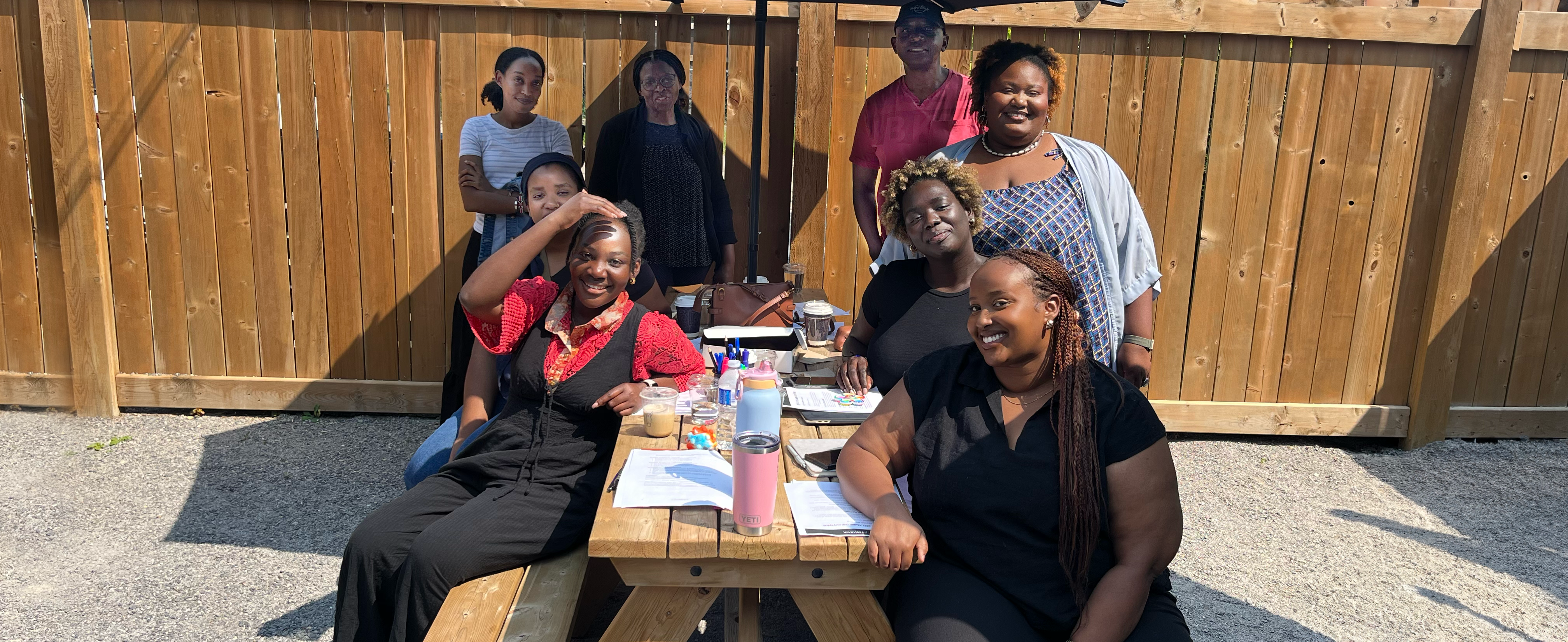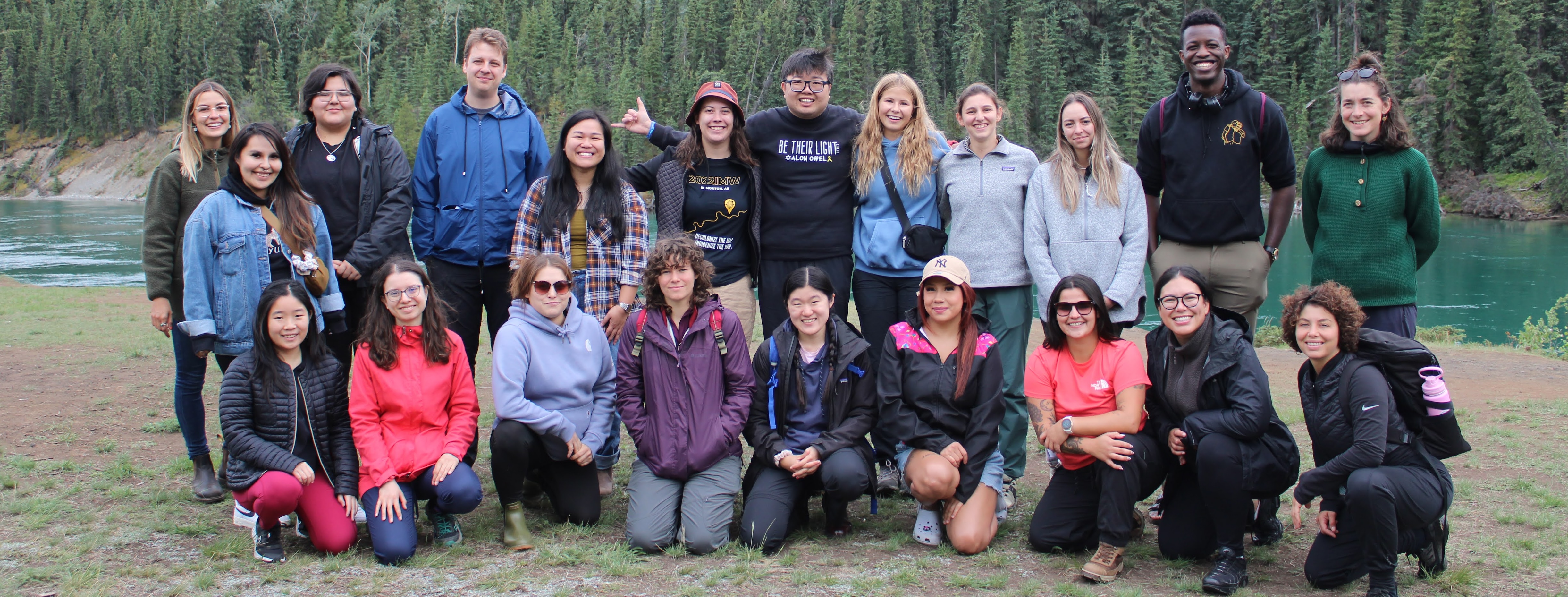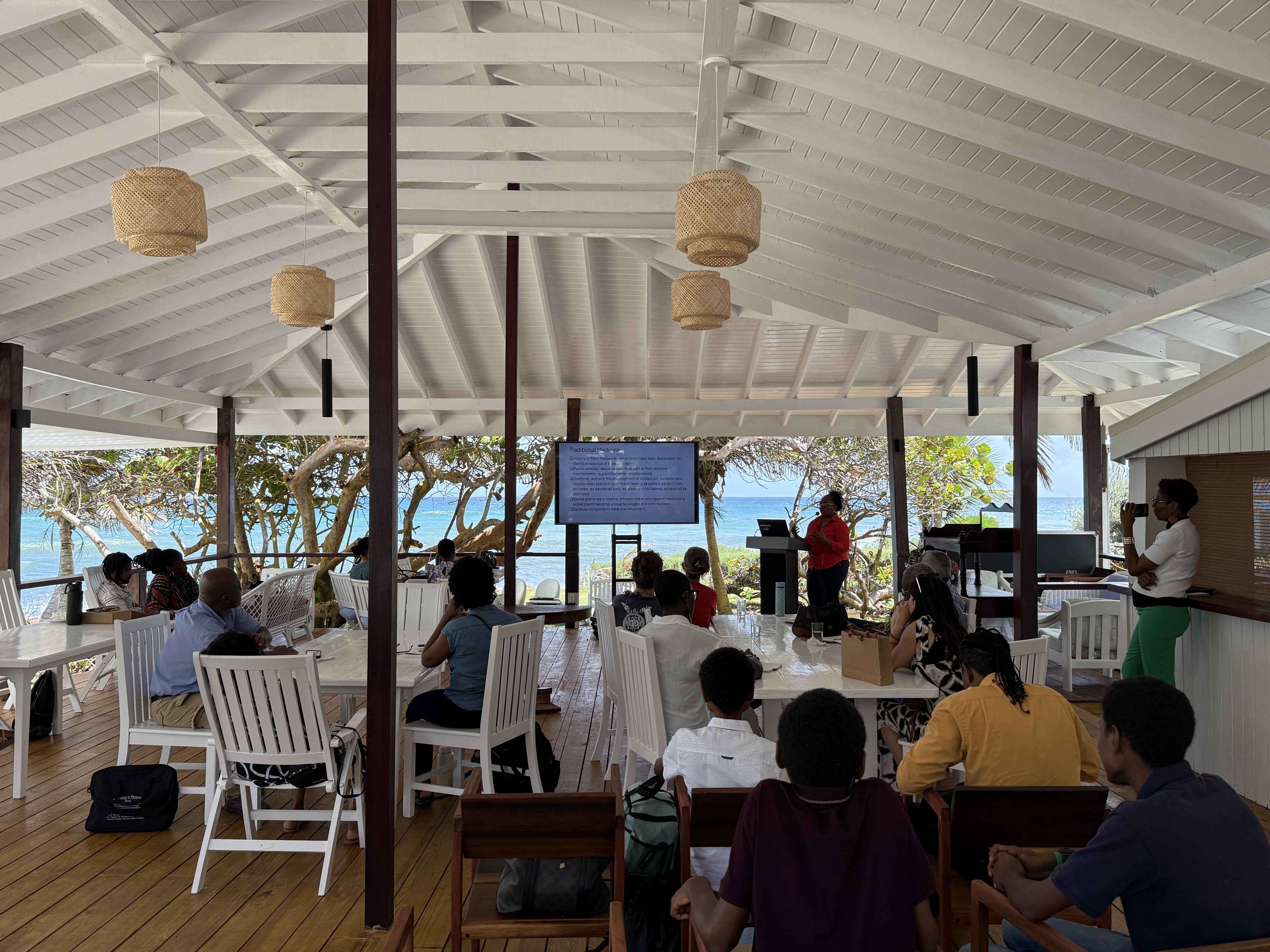Cette ressource est également disponible en français. Pour y accéder, veuillez cliquer sur l’icône du globe dans le coin supérieur droit de la page et choisir Français – Canada.
Written by Laura Schnurr (Tamarack Institute) & Hope Moon (Climate Reality Project Canada)
In fall 2023, five organizations working on accelerating community-level climate action (Tamarack Institute, Climate Caucus, Climate Reality Project Canada, Clean Air Partnership and David Suzuki Foundation) partnered to launch an eight-part webinar series exploring ways in which the twin crises of affordability and climate change can be tackled in tandem. We made the case for why integrated solutions are necessary and pointed to examples of where they are working in this blog post kicking off the series.
Over the past nine months, we dove into how climate and affordability play out in different areas. Here’s a recap of the sessions:
- Buildings Part 1 – New Construction: Clean Air Partnership’s Gaby Kalapos introduced our series situating climate action and solutions into the municipal realm and highlighted local development as a key area to reducing emissions and costs: “What our communities look like directly affects how much energy we use.” The presentation went over building codes, municipal planning standards, green standards, and how energy efficiency is housing affordability.
- Buildings Part 2 – Retrofitting Existing Stock: Clean Air Partnership led this session to discuss affordable retrofitting programs: the financing (and lack thereof) of retrofit programs, energy equity in the rental market, and job opportunities. We also heard from Kirk Johnson from Energy Efficiency Consulting who presented the St. James Town case study, unpacking how one of the most densely populated neighbourhoods in the country worked to engage tenants, community members and asset managers to examine climate solutions and affordable adaptation pathways forward.
- Energy – Led by the David Suzuki Foundation, this session featured a panel of experts, Dr. Azzam Abu Rayash (Polaris Energy Sustainable Solutions), Shannon Miedema (City of Halifax), and Jade Schofield (Delphi, Ontario Urban Forest Council), discussing topics of energy affordability at the municipal level, regulatory challenges and developer pushback, and sustainable financing across regions. It also continued the topic from the previous session of increasing affordability of home retrofits, as brought up by curious audience members.
- Food Security – Tamarack Institute introduced the discussion on food, climate, and affordability by situating food security as a climate and affordability issue as well as bringing up possible solutions. To expand this overview through a case study, Justine Dainard explained Our Food Future, a Smart Cities Challenge awardee which brings a circular economy perspective to the urban-rural region of Guelph-Wellington to make their food system more equitable and climate friendly.
- Nature-Based Solutions – David Suzuki Foundation led a panel on Nature-based Solutions (NBS) featuring Samantha Cava (Greenbelt Foundation), Scott Bohachyk (Ocean Wise), Clarissa Samson (David Suzuki), and Andrea Bastien (Indigenous Climate Action). Discussions covered topics such as how each panelist and organization approaches NBS and the importance of bringing it back to and incorporating community, the strategies municipalities can use when trying to advance NBS, and ways to help showcase the importance of implementing NBS.
- Zero Waste and Circular Economy – The Climate Reality Project Canada introduced two speakers – Lucy Duso (Metro Vancouver) and Sue Maxwell (Zero Waste BC) – to give presentations on waste and the circular economy at the municipal level, tackling consumption and behaviour, and redesigning waste systems with an equity lens.
- Transportation – Climate Caucus hosted a series of presentations featuring Jon MacMull (Canadian Urban Transit Association), Dan Hendy (Get on the Bus), and Councillor Wayne Olsen (Town of Pelham) to discuss the intersections of housing and transit, the movement to empower youth to use public transit systems, and on-demand transit systems in Niagara.
- Governance – In the final session, Liz Weaver from Tamarack Institute and Devanshi Kukadia from Clean Air Partnership shared tools and frameworks for embedding accountability into municipalities, including through applying a climate lens across a municipality’s entire portfolio as well as incorporating community perspectives and intersectoral collaboration into planning.
To access all the slides, resources, speakers, and recordings from the webinar series, check out the resources document.
Partner takeaways
Achieving a meaningful and lasting change requires taking a bottom-up, community-driven approach to tackling environmental challenges. By empowering municipalities and grassroots organizations to lead efforts in renewable energy adoption and nature-based solutions, we can achieve more tailored and effective outcomes. This approach not only aligns with global environmental goals but also ensures that the unique needs and strengths of each community are leveraged, fostering innovation, resilience, and broad public support for a sustainable future. We need to actively be listening to, seeking advice from and working with organizers on the ground, as they understand the equity-based solutions needed within communities across Canada.
– David Suzuki Foundation
There are many opportunities for municipalities to implement multi-solve approaches that help to address these interconnected issues and achieve co-benefits. Throughout this series, we delved into the complex issues of affordability and climate change exploring various strategies communities have used to reduce emissions and costs across Canada. The speakers and examples helped highlight these interconnections in various sectors, and the importance of moving away from siloed thinking. In the transit edition, for example, we learned about initiatives like “Get on the Bus”, where municipalities are investing in free youth transit, and seeing numerous co-benefits such as youth empowerment, reduced costs of school programs, increased transit ridership and decreased air pollution. The webinars reinforced how critical it is to recognize these intersections as municipalities continue to address the climate crisis and pave paths towards more sustainable, resilient and affordable communities.
– Climate Caucus
Contributing to a broader effort
While this series was underway, other collaborators in the ecosystem were also busy advancing the shared goal of addressing affordability challenges and climate change through integrated solutions. The Affordability Action Council, a group of policy experts and community leaders convened by the Institute for Research on Public Policy, Trottier Foundation, McConnell Foundation, and Destination Zero, is one such example. The Council was formed in summer 2023 to explore the ways in which these issues intersect and develop recommendations for supporting lasting affordability, resilience and emissions reductions.
In February 2024, they released the report Making Ends Meet: A New Approach to Tackling Affordability with a set of recommendations for actions the federal government can take. These cover housing retrofits for low-income households, building affordable housing that supports net-zero and climate resilience goals, creating a Groceries and Essentials Benefit for low-income households, shifting the incentives for zero-emission vehicles and increasing funding for public transit, and ensuring affordable and safe transportation for rural, remote and Indigenous communities.
Meanwhile Climate Action Network Canada (CAN-Rac) and many of its members have also been advocating for governments at all levels to take action to simultaneously tackle the climate and affordability crises.
The Affordability Action Council, CAN-Rac and their members are critical voices in this work and particularly on influencing federal policy. The work that Tamarack and our four partner organizations have been leading is very complementary; focused on supporting communities to take integrated action at the local level now using the tools, technology and other solutions already available, demonstrating their potential and inspiring others to follow suit. These two approaches are essential pieces of the puzzle for shifting the systems that keep these issues in silos.
Looking ahead
Tamarack and partners will continue to cover these issues in publications, webinars, events, and community of practice calls. We are also considering what additional topics we might explore for a future joint webinar series. We would love to have your input on this, so feel free to send any ideas to laura@tamarackcommunity.ca.



